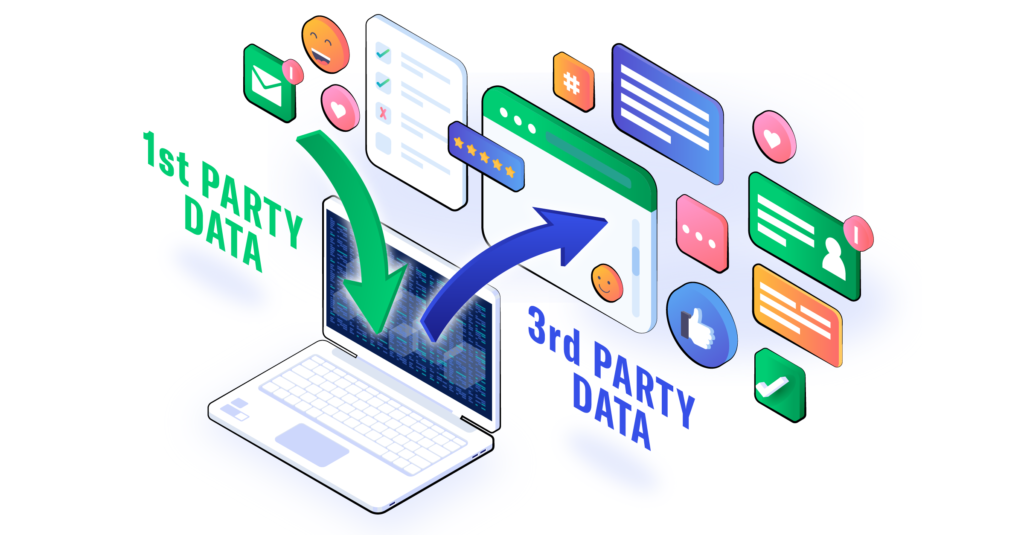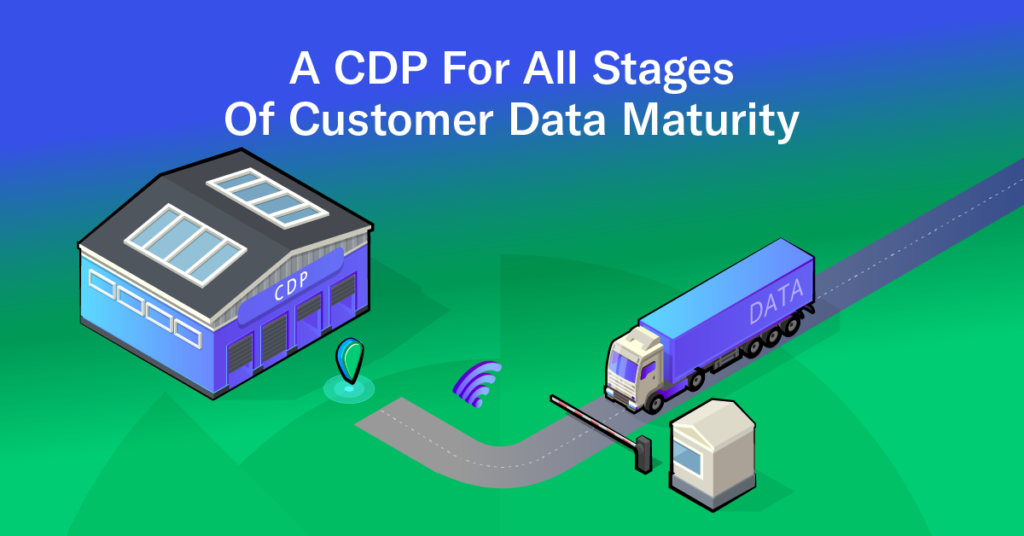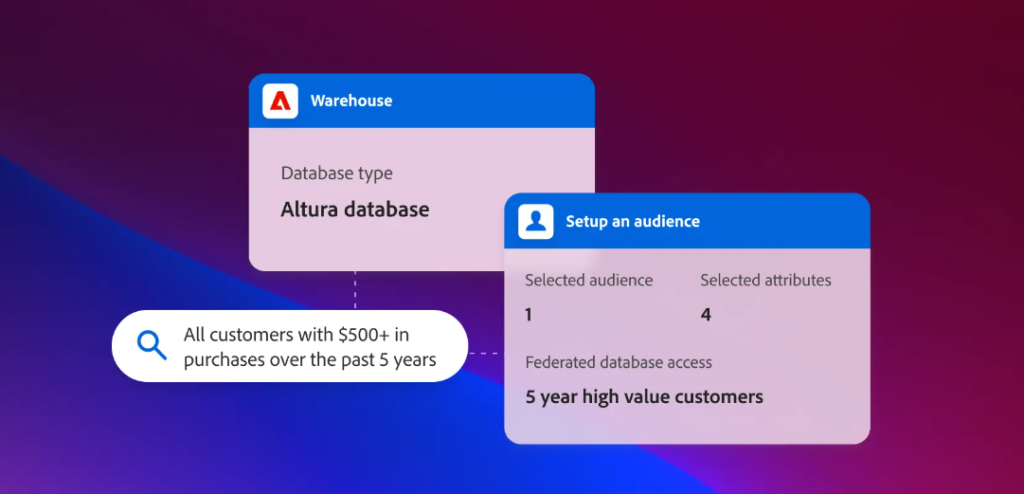How CDPs help you address consumer privacy concerns about internet marketing
October 4, 2021Google and Apple recently announced new consumer privacy policies to end the use of third-party cookies. These policies will limit marketers’ ability to track users on apps and websites. Luckily, Customer Data Platforms (CDPs) can help circumvent these challenges by building your first-party and second-party dataset. Read on to learn how.
Although data-driven retail is still the norm, brands and retailers now need to focus on different kinds of data to operate their businesses.
Many companies rely on third-party cookies to fuel their marketing campaigns—but the new ad-blocking updates by Apple, Google’s depreciation of third-party cookies, and other changes to the consumer data privacy landscape have thrown a wrench into many digital advertisers’ strategies.
Without the ability to rely on third-party data and device tracking, advertisers will struggle to target consumers with personalized ads and track campaign performance across channels and devices.
To address these challenges, marketers will now need to focus more on first-party and zero-party data. By building and using an owned dataset independent of third-party cookies, you can serve targeted digital ads in a personalized and privacy-compliant manner.
What is first-party and zero-party data?
First-party and zero-party data is information that a company collects from the customers through onsite queries and forms submission. You can collect first-party data from offline sources like sales calls, customer purchase information, and store visits.
On the other hand, zero-party is a subset of first-party data, including the information your customers freely choose to give to your brand. Zero-party data reveals information like communication preferences, purchase intent, personal interests. Collecting, managing, and analyzing first and zero-party data will give you a competitive marketing advantage in the post-cookie world.
Some of the benefits of this data include:
Precise audience targeting
Using first and zero-party data, you will have accurate customer insights into who your best shoppers are, what they shop for, and how they prefer to engage with your brand. With such information, you will understand your customer’s behavior and preferences to develop personalized marketing campaigns—without violating any privacy or compliance regulations.
Measurement and campaign performance tracking
By collecting data directly from your customers, you can track your campaign performance against essential omnichannel metrics such as customer lifetime value. This customer-centric (as opposed to channel-centric) measurement allows you to understand how your marketing activities are impacting actual customer behavior and core business KPIs. Then, you can adjust your marketing strategies accordingly to improve your effectiveness.
Customer engagement
Having a great understanding of your customers using owned data means you can create personalized advertising experiences that ultimately grow lifetime value and improve retention rates. You will always market with your audience’s preferences in mind and stay ahead of your customers’ desires which helps build a two-way relationship between your brand and its highest-value customers.
Privacy and compliance
First and zero-party data gives you better insights concerning your customer’s needs, desires, and behaviors without violating any consumer privacy regulations. Because consumers are increasingly concerned about privacy related to internet marketing, your ability to engage them while honoring their privacy will be critical to developing brand loyalty and reducing churn rates.
One great tool that can help you collect and manage such data is a customer data platform (CDP).
What are CDPs?
Consumer privacy concerns have brought more attention to the value and impact of customer data platforms. CDPs help you gather zero-party and first-party data, combine and enrich that data with information from all of your retail data systems and sources, and create a single customer view. This single customer view provides a comprehensive, omnichannel understanding of who your customers are and how they interact with your brand, making them vital to your marketing efforts.
Additionally, CDPs with built-in form-building features like Lexer enable you to send surveys to collect unique and valuable zero-party information about your customers. This information will inform future personalization strategies without hindrance from the new consumer privacy laws and regulations.
After successfully deploying a CDP, you’ll be able to gather better customer insights to help you create better and long-lasting relationships with your customers. By unifying and organizing data across various channels and touchpoints, you can easily segment and identify your high-value customers and improve relationships by crafting personalized experiences while at the same time complying with security and privacy standards.
If you think a CDP might be the right solution for your business, click here to learn essential questions and considerations for choosing a CDP.
How do CDPs help you navigate the new consumer data privacy regulations?
CDPs collect information from your company website, Facebook, email, and other channels where your customers interact with your brand. The software will then integrate your customer data and create comprehensive profiles that give you oversight into all interactions customers have had with your brand—without the need for third-party tracking.
You can use this information to deepen your customer intelligence, create targeted audience segments, orchestrate personalized customer journeys for every lifecycle stage, measure your performance, and more. Because all of your data is housed in one place, you can develop a consistent, end-to-end customer engagement strategy that leads to improved acquisition, growth, and retention.
You can use CDPs to perform various use cases, including:
- Creating data-defined customer personas
- Acquiring high-value customers
- Turning one-time customers into repeat buyers
- Improving email engagement and ROI
- Predicting and preventing churn
- Personalizing messaging and creative
- Measuring key metrics and KPIs such as CLV
- Fostering an internal culture of customer-centricity
This focus on customer-centricity will allow you to continue targeting customers with impactful advertising campaigns, all while meeting the highest standards of privacy, security, and compliance.
Types of first-party and zero-party data collected by CDPs
To create unified customer profiles, CDPs have to gather a lot of user information across multiple channels. The types of data collected by CDPs include:
Identity data
CDPs collect and unify personal information to help you uniquely identify each customer no matter where they interact with your brand. This data includes the user’s first and last name, email, phone number, and mailing address.
Descriptive information
Descriptive data, typically collected through forms or surveys, will help you gain a better understanding of your customers’ lifestyles and relationship to your specific business. For instance, if you sell children’s products, you might ask customers to provide information regarding the age and gender of their kids. CDPs like Lexer offer data enrichment tools that can provide additional lifestyle information from sources such as Experian’s Mosaic.
Behavioral data
CDPs help collect customers behavioral information to help you understand how your customers are interacting with your company. This data includes email engagement rates, products viewed on the website, social media interactions, query details, purchased items, returned products, and abandoned carts.
Qualitative information
CDPs can also collect and unify data concerning customers’ opinions toward your brand and products, including the most common colors of the products they purchase, how they rate their satisfaction with your brand via NPS surveys, or what makes them choose your brand over competitors.
The bottom line
The way you collect, manage, and analyze your customer data significantly affects your business. CDPs will help you better understand your customers to make data-driven decisions while remaining compliant with the ever-evolving consumer privacy regulations.
Lexer is the Customer Data Platform of choice for top brands like Igloo, Quiksilver, Rip Curl, Supergoop! Nine West, and more. As the only CDP built for retail, we help the world’s most iconic brands drive incremental sales growth through improved customer engagement.
This article was adapted from Lexer’s article, “Consumer data privacy: A survival guide for digital advertisers.” If you liked this, you’ll probably find more value in the original, in-depth version too. Click here to read the full version on Lexer’s website.


